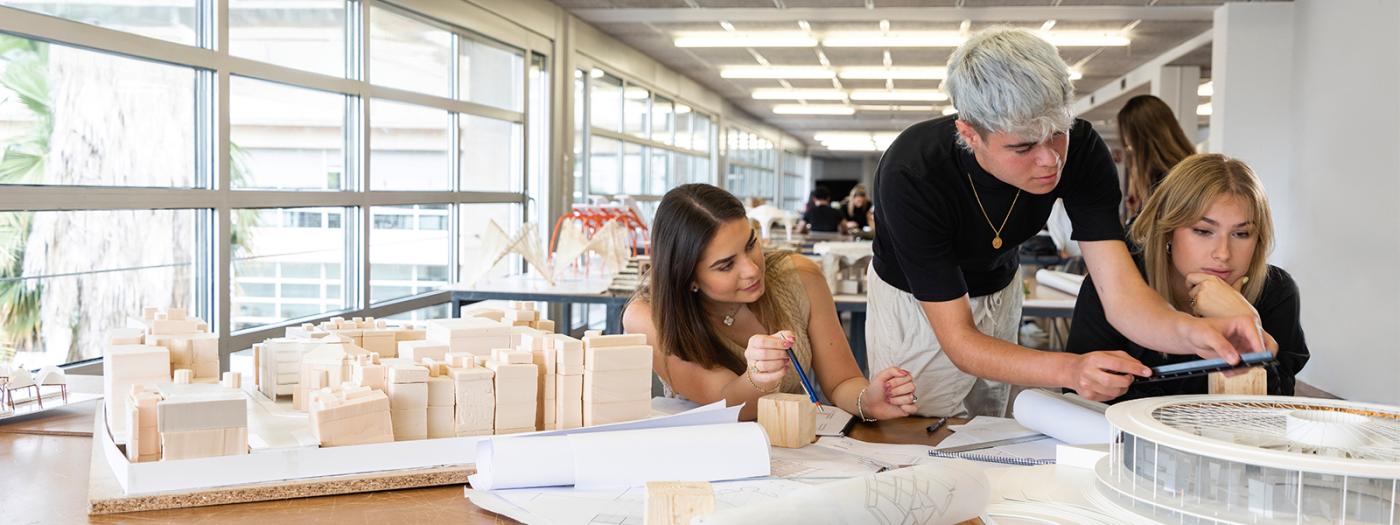CODE: YY029
LANGUAGE: Catalan | Spanish | English
Titular Professors
This course provides an in-depth exploration of the design process, placing special emphasis on the construction, the logics or tectonics of energy, and the management of the associated costs.
Costs are analysed from two perspectives: economic and environmental. The course examines their potential to generate design solutions, with their knowledge, quantification, and assessment serving as tools in the design process.
The parameters that define a project based on energy logics are studied, along with the design strategies that enable the reduction of environmental costs, including both operational energy costs during the use phase and embodied energy generated throughout its life cycle.
The project is closely linked to the management of its construction, building it and evaluating the economic and environmental impact of the adopted solutions. Additionally, the budget is introduced as a tool to quantify these costs and assess the project?s feasibility.
The subject content is organized in two thematic units that will be worked-out interrelatedly throughout the course sessions. The tectonic design of energy is the guiding thread and methodology thread that permits students to delve deeper into the management and knowledge of the construction costs.
Construction process:
Management of the construction process: planning and costs of the construction.
Environmental costs and Economic costs. TCQ. Measurements and budget.
Costs as project generators.
Tectonic project:
Design based on the principles of the logic of energy. Meaning and definition of the concept of tectonics of energy.
Embodied energy. Operational energy. Passive strategies.
Energy as a project generator.
The methodology of this course is project-based learning, and it is essentially practical, through the manipulation of materials, quantification, and construction. The energy-based tectonic design and its subsequent construction and evaluation will be the methodological framework that allows the student to deepen their knowledge and management of the construction process, with a special emphasis on managing the costs?both environmental and economic?related to it.
The course includes four projects. The content will be taught as needed for the development of each project, and the final result will always be a real object or construction.
All exercises will be presented with an introductory talk and concluded with a discussion of the results. Development will take place in class, in groups of about 30 students per professor, and will be supplemented with out-of-class work.
Cooperative learning and the generation of collective knowledge will be encouraged: the material produced by the whole group will be used as prior knowledge for the final project of the semester.
Design exercises grades will be the result of a continuous assessment of the student?s work by their professor. In addition to the result, the grade considers also progression, participation, preparation and perseverance in the work.
A minimum attendance of 80% will be required to pass the subject on this convocation.
1- Practical work and exercises: completion and submission of projects, models, and assigned exercises throughout the course.
2- Participation and engagement in class: active attendance, involvement in classroom dynamics, work during class and workshops, and contributions to group sessions.
3- Weekly reviews of projects and activities: presentation and correction of projects and activities, with ongoing feedback from the teaching staff.
4- Public presentations of partial and final results.
5- Final presentation before a jury with an overall evaluation of the process and the outcomes achieved.
